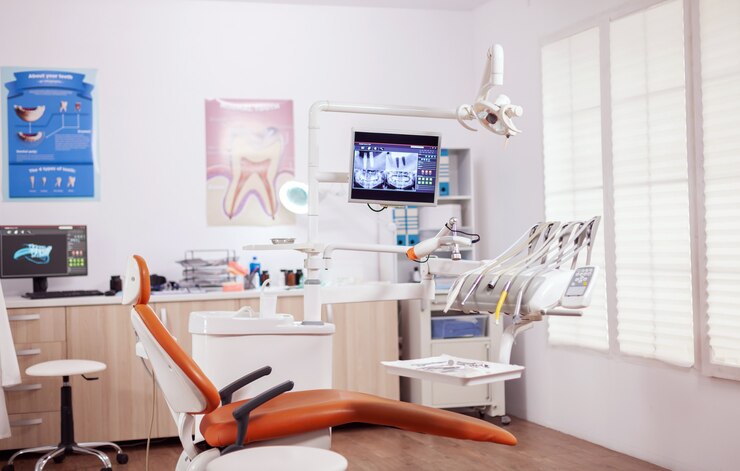If you follow dental tech even a little, you’ve probably heard the name Biolase. They’re the company that sells fancy laser systems for dentists, especially products like Waterlase that aim to make dental treatments less stressful for patients and easier for dentists. Over the years, Biolase has promoted their lasers as the future for tooth, gum, and root canal work. But recently, their future as a company has started looking pretty uncertain. Let’s break down what’s happening, why they’re in the headlines, and what it could mean for their customers and employees.
Years of Tough Financial Results
Biolase isn’t new to financial challenges. If you look back, the company has posted more years with red ink than black. Basically, even though their technology got decent attention in dental circles, their bottom line lagged behind. For a lot of people watching, the steady flow of losses raised concerns.
When you look at stats from their recent filings, things get a bit more alarming. Biolase currently holds a 100% probability of bankruptcy, according to certain analytical models. That’s not a typo. It means every sign points toward serious, possibly terminal, distress. It’s also 131% higher than the average expected for companies in the health care equipment space. Even within an industry where risk isn’t unusual, that number stands out.
A probability above 80% would be worrisome for most companies—here, it’s off the charts. This isn’t the kind of “temporary rough patch” situation you sometimes see with tech startups. It’s more a string of losses stretching out over years.
The Bankruptcy Filing: Why and Where
So things finally came to a head on October 1, 2024. That’s when Biolase, along with its direct domestic subsidiaries, filed voluntary petitions under Chapter 11 bankruptcy. They did this in the United States Bankruptcy Court for the District of Delaware. Chapter 11 is a specific type of bankruptcy process that companies use when they hope to reorganize rather than just shut down and pay off creditors.
For anyone less familiar, Chapter 11 usually means a company gets temporary breathing room while it sorts things out. Sometimes the business survives and comes out the other side. Other times, key assets get sold off and what’s left is a shell of the original company. For Biolase, the filing was not out of the blue—most experts agree it was the likely next step after so many bad financial quarters.
Selling Assets to Sonendo
Alongside the bankruptcy filing, Biolase announced it’s working on a plan to sell off most of its stuff—basically all of its important assets. The buyer in line is Sonendo, Inc., a Delaware-based company that’s also in the dental tech space. Sonendo is best known for offering a non-traditional, no-drill root canal system, and they’ve been a competitor of Biolase for a while.
Here’s how the deal is supposed to play out: Sonendo agreed to buy most of Biolase’s assets for a total of $14 million. The actual sale happens through a court-approved auction. That means if somebody else steps up with more cash during the official process, Biolase could accept a better offer. Otherwise, Sonendo gets the win.
Sonendo’s interest isn’t just in Biolase’s existing equipment and tech—they’re also looking to settle a separate patent litigation (which we’ll get to in a bit). The asset sale, in theory, wraps up both the business deal and the legal fight at once. But until the auction is final and the court signs off, it’s still all up in the air.
What Happened with Nasdaq?
One thing that sometimes flies under the radar is Biolase’s battle to stay listed on the stock market. For a chunk of 2024, even before bankruptcy rumors spun up, Biolase was already in trouble with Nasdaq. The exchange has rules for stocks—like a company’s share price can’t stay below $1 for too long, and there has to be a certain amount of shareholders’ equity on the books.
On June 18, 2024, Nasdaq finally pulled the plug. Biolase got the formal notice: its shares were being delisted because they hadn’t met the minimum price for too long, and they didn’t have enough equity left to meet the exchange’s requirements. Trading of Biolase’s common stock stopped on June 20. Since then, the shares have only traded “over-the-counter,” which is like the minor leagues of stock trading—less oversight, smaller audience, and less prestige.
Losing a Nasdaq listing hurts more than company ego. It can make it much harder to attract new investors, raise money, or reassure customers and suppliers about the business’s stability.
Patent Trouble with PIPStek and Sonendo
Some of Biolase’s current trouble actually started a couple of years ago in court. In January 2023, a company called PIPStek (which Sonendo picked up back in 2017) filed a lawsuit claiming Biolase’s main dental laser, the Waterlase, infringed on three patents. These patents cover a particular way to use pulsed lasers for root canal treatment without generating lots of heat—supposedly a big breakthrough in patient comfort.
If you’re a dentist, this probably sounds pretty important. If you’re a patient, you might just be glad the lasers aren’t causing you any pain or burning. For Biolase, however, the lawsuit meant big financial risk. The case was actually scheduled to go to trial in May 2025, but with the bankruptcy in play, a lot of that is now tangled up in the pending asset sale.
As part of the Sonendo deal, the companies intend to settle the litigation simultaneously. If Sonendo wins the auction, the lawsuit ends, and Sonendo picks up Biolase’s tech (including, in all likelihood, the Waterlase system) fair and square.
How Is Biolase Responding?
Even in the middle of all this drama, Biolase is trying to keep things running day-to-day. Through bankruptcy filings, they’ve asked the Delaware court for permission to keep serving customers, providing their dental laser products, and holding on to their team—the basics needed to keep the doors open.
The leaders at Biolase say they’re focused on supporting dentists who use their lasers, answering service calls, and meeting current orders as best they can. That’s standard operating procedure for companies in Chapter 11, but there’s always an undercurrent of uncertainty. Customers wonder if their warranties or support contracts will last; employees worry about layoffs.
If the asset sale works out, Biolase could see its operations move over to Sonendo or another buyer. In past bankruptcy sales, the acquiring company sometimes keeps key staff and tries to maintain continuity for clients. But nothing is guaranteed until the court and all the parties close the deal.
What’s Next? Prospects and Possible Outcomes
So what happens after all this is over? A lot depends on how the auction and court proceedings play out in the coming months. If Sonendo or another bidder takes over Biolase’s assets, the Biolase brand might keep going under new ownership—or it could get folded into Sonendo’s wider business model.
For dentists who rely on Biolase lasers, the big concern is whether support and parts will keep coming, or if warranties might get voided. Some will remember similar shakeups in med-tech where loyal customers suddenly needed to switch brands after an acquisition. Right now, Biolase is promising to minimize disruption, but the outcome depends on how the new owner approaches the business.
The bankruptcy and sale might clear away old debts, but the real test is whether the underlying technology is valuable enough to survive all the legal and financial baggage. Sometimes a company in bankruptcy gets a second wind. Other times, the new owner just picks out the most useful pieces and the rest of the company fades away.
If you want to see how this type of turnaround plays out in business, sites like Blue Business Mag often track the long-term aftermath of deals like these.
Where Things Stand Right Now
In the end, Biolase’s situation doesn’t look good—but it’s not shut down yet. The company has filed for bankruptcy, sold off its main assets in principle, and gotten kicked off Nasdaq. But for now, they’re still supporting existing customers and trying to salvage value in the sale process.
If you work in the dental industry, it’s smart to stay updated—particularly if you use Biolase tech or work with their customer support. For investors, the delisting and bankruptcy are clear warning signs. For patients, the story probably doesn’t matter—unless your dentist is about to switch equipment providers.
All in all, we’ll likely know more in the next few months. Biolase is hanging on for now, but whether it will survive as its own company or become just a product line under Sonendo is still up in the air. Right now, everyone’s keeping an eye on the bankruptcy court and the auction results. Watch this space for updates.
Also Read:










